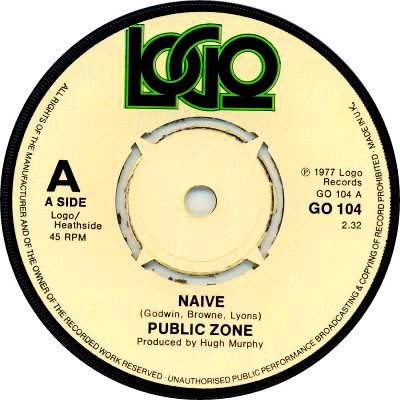

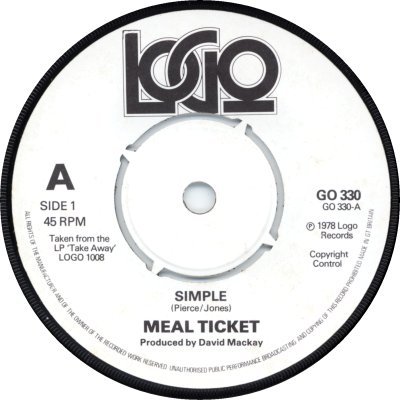
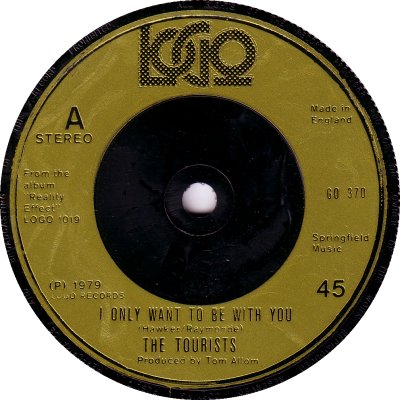
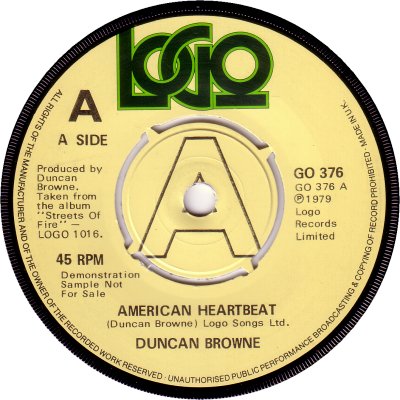
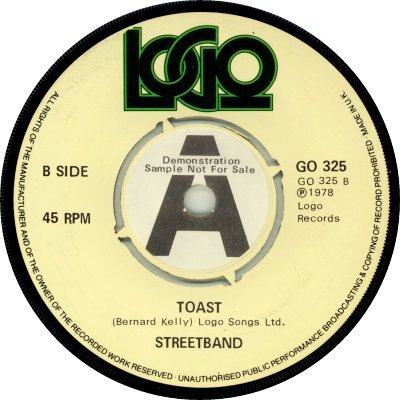
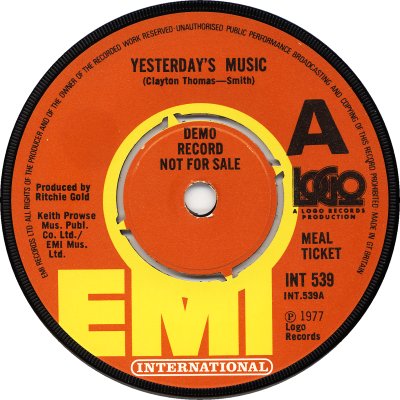
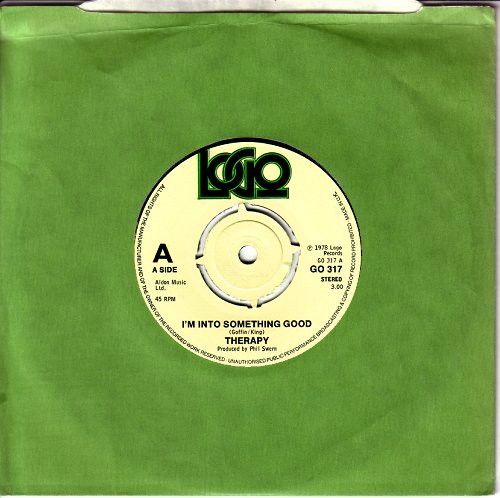
The roots of Logo lie in a company called G&O Leisure, which was formed in 1976 by ex-RCA executives Geoff Hannington and Olav Wyper; the pair had worked together on Phonogram's Vertigo label (q.v.) before moving to RCA. According to 'Music Week' of the 25th of September G&O's interests were to extend to music publishing, in the form of Gando Music, and artist management, and it had the financial backing of publishers Marshall Cavendish - George Amy of that firm was to join the board of the new company. The article said that G&O intended to introduce a new label, G&O Records, in the new year, and it named four artists as having been signed: Rockie, Michael Price, John Spencer, and Jackdaw. The company had acquired premises in Thorn House, Upper St. Martin's Lane, London WC2. A couple of months later the 'Gossip' column in 'MW' of the 27th of November noted that there had been a change of name from G&O to O&H in order to avoid confusion with GTO Records (q.v.).
'Cash Box' magazine of the 1st of January 1977 was able to offer a little more insight into the current situation. It said that Wyper and Hannington had talked about joining forces when they were at Vertigo, and again during their time at RCA. Wyper had left RCA before Hannington did, but when Hannington left the pair had been approached by Marshall Cavendish with an eye to starting a leisure-based company. It added that O&H Entertainments, as the company was now named, covered Logo Records, Logo Music, Logo Management and Logo Entertainments. It confirmed the signings of Michael Price and Jackdaw, and added Meal Ticket, Dave Skinner and Vana. O&H's priority was to get the Logo label established, and the possibility of some kind of licensing deal was being considered. As it turned out, however, Logo was not to appear until the end of the year. In the meantime 'MW' of the 28th of March reported that the company had licensed a single and an LP by Meal Ticket to EMI: 'Out Of The Blue' b/w 'Day Job' came out on EMI International in May, numbered INT-533, with a production credit to Logo Records.
O&H took a big step forward in July 1977 when Marshall Cavendish bought Transatlantic Records (q.v.) and its associated publishers Heathside Music 'MW' from Granada and added them to the O&H group. 'MW' of the 16th of June, reporting on the purchase, observed that despite O&H having been formed over a year ago the Meal Ticket deal was the only one that it had so far been able to carry out. Wyper was quoted as saying that his and Hunnington's intention had been to run an independent record company using their own judgement and finance, but they had been unable to secure the right terms from any of the majors. The licensing deal with EMI for the Meal Ticket tracks had gone somewhat against the grain, as there was no sense in building and developing acts only to license them to half-a-dozen different companies. They had looked at the possibility of buying an established company, and Transatlantic had been available. 'MW' of the 27th of August reported that a pressing / distribution /sales deal had been signed with Decca; the deal covered not only Logo and Transatlantic but the labels which Transatlantic had been handling at the time it was acquired: Black Lion, MWM, Milestone, Rubber and Chipping Norton (q.v. all). A few weeks later EMI put out a second Meal Ticket single, 'Yesterday's Music' b/w 'The Man From Mexico' (INT-539; 9/77); this time the labels featured the Logo logo (7). There was to be one more development before Logo made its debut as a label: Transatlantic enjoyed a belated and unexpected success when, following repeated radio exposure, The Brighouse & Rastrick Brass Band's version of 'The Floral Dance' b/w 'Girl With The Flaxen Hair' (BIG-548) entered the Singles Chart on the 19th of November, more than a year after it was first released. It went on to occupy the No.2 spot in December.
Logo finally appeared in its own right in November 1977. Its singles were initially numbered in a GO-100 series, but this changed to the GO-300s in February 1978, GO-107 being followed by GO-308. Records by Michael Price, Dave Skinner and Meal Ticket were among the releases, but nothing by Jackdaw, Rockie, John Spencer or Vana surfaced. At the start of June 1978, after failing to make any impression on the Charts, Logo left Decca and moved to RCA, again on a pressing/ distribution / sales arrangement. Transatlantic and the labels associated with it - listed in 'MW' 20th of May as Barclay (q.v.), Black Lion, Brain, Freedom, Leader and Trailer (q.v.) - also moved across. By that time the Transatlantic label itself had shelved, as far as new releases were concerned, but a couple of artists from its roster - the Brighouse & Rastrick Band and Alberto Y Lost Trios Paranoias - had been transferred to Logo. Despite several attempts, varying from renderings of 'Theme from 'Shaft'' (GO-316; 6/78) to 'O Come All Ye Faithful' (GO-332; 1978), the Brighouse failed to score again, but the Albertos gave Logo its first hit, albeit a minor one, in September 1978, when 'Heads Down No Nonsense Mindless Boogie' b/w 'Thank You' (GO-323; 9/78) reached the No.47 spot. Streetband improved on that the following month, when their single 'Hold On' (GO-325; 10/78) was flipped and its 'novelty' 'B' side, 'Toast' got into the Top 20. Then in November Driver 67 gave Logo another novelty hit in the form of 'Car 67' b/w 'Communications Breakdown' (GO-336), which cracked the Top 10 and peaked at No.7. After that, however, the hits dried up for a while.
1979 got off to an unpromising start when Olaf Wyper left, citing 'irreconcilable difficulties' with chairman George Amy over the company's future direction ('MW', 6th January). February saw Logo's press and promotion department being broken up and the tasks being farmed out to a specialist independent company called Record Sales ('MW', 17th February). The Tourists provided a minor hit in July, their first single, 'Blind Among The Flowers' b/w 'He Who Laughs Last' (GO-350; 5/79) stalling just outside the Top 50, but things weren't looking good. 'MW' of the 29th of September broke the news of staff cuts: the company had had just one hit since March and back-catalogue sales over the past four months were described by a spokesman as 'appalling'. 'Billboard' of the 20th of October added that Hannington had taken on the marketing manager's job as well as his own, and that the company was offering half-price pre-release albums to dealers in an effort to boost sales. The Tourists provided a measure of relief as their next two singles managed improved Chart placings: 'The Loneliest Man In The World' b/w 'Don't Get Left Behind' (GO-360; 7/79) nearly got into the Top 30, and then their version of 'I Only Want To Be With You' b/w 'Summers Night' (GO-370; 11/79) presented Logo with its sole Top 5 placing, reaching the No.4 position. It wasn't enough to prevent rumours about the company beginning to circulate. 'MW' of the 8th of December reported that although a proposed deal with RCA had fallen through recently a company spokesman had said that nobody was "Rushing out to put up the 'For Sale' sign". 'BB' of the 22nd of that month noted that Marshall Cavendish had denied that Logo was up for offers, despite the year being a poor one for record sales; it was however moving to a 'more modest' office than its current one.
The Tourists supplied a slight boost to Logo's fortunes when 'So Good To Be Back Home Again' b/w 'Circular Fever' (TOUR-1; 2/80) reached the No.8. spot in the spring of 1980; they then left for RCA. Sadly, no more hits were forthcoming for Logo. Geoff Hannington acquired both Logo and Transatlantic in 1981; then in the autumn of 1982 he and another ex-RCA man John Hines set up IDS, 'Independent Distribution Services', to offer a range of functions to small independent companies. 'BB' of the 17th of July said that IDS was scheduled to start operations in September; it said that Hannington would retain his interest in Logo and Transatlantic but would delegate the day-to-day running of them to other people. In the event Logo appears to have taken a back seat to the new company; it issued no more singles until 1994, when a TV advert for Gale's honey led to the re-release of 'Toast' (GO-501; 1/94), and only the occasional compilation of popular material came out in LP form.
As stated above, pressing was done by Decca initially, with distribution by Selecta, and RCA took over both of those functions in June 1978. One label design served from the start until around May 1982, at which point a new black-labelled design was adopted - it seems a reasonable bet that the change marked the purchase of the company by Hannington. The labels of Decca-era Logoes (1) seem to have been generally rather less creamy than RCA ones (2); in addition the position of the credits altered slightly at the time of the change-over, and the perforations got narrower. The monochrome label (3) seems to have been used only for GO-330 and its double-pack equivalent, GO(D)-330, while the injection moulded labels (4) were contract pressings by Phonodisc. There were no demo labels during the time at Decca, but RCA-era demos were marked in the standard RCA manner (5). When GO-325 was flipped and re-promoted old stock copies were given a sticker to denote the new 'A' side and were used as demos (6) - this was also done for at least one record on the RCA label. Logo singles came in a plain lime-green sleeve, with nothing on them to identify them (8). The discography below only covers the 1970s.
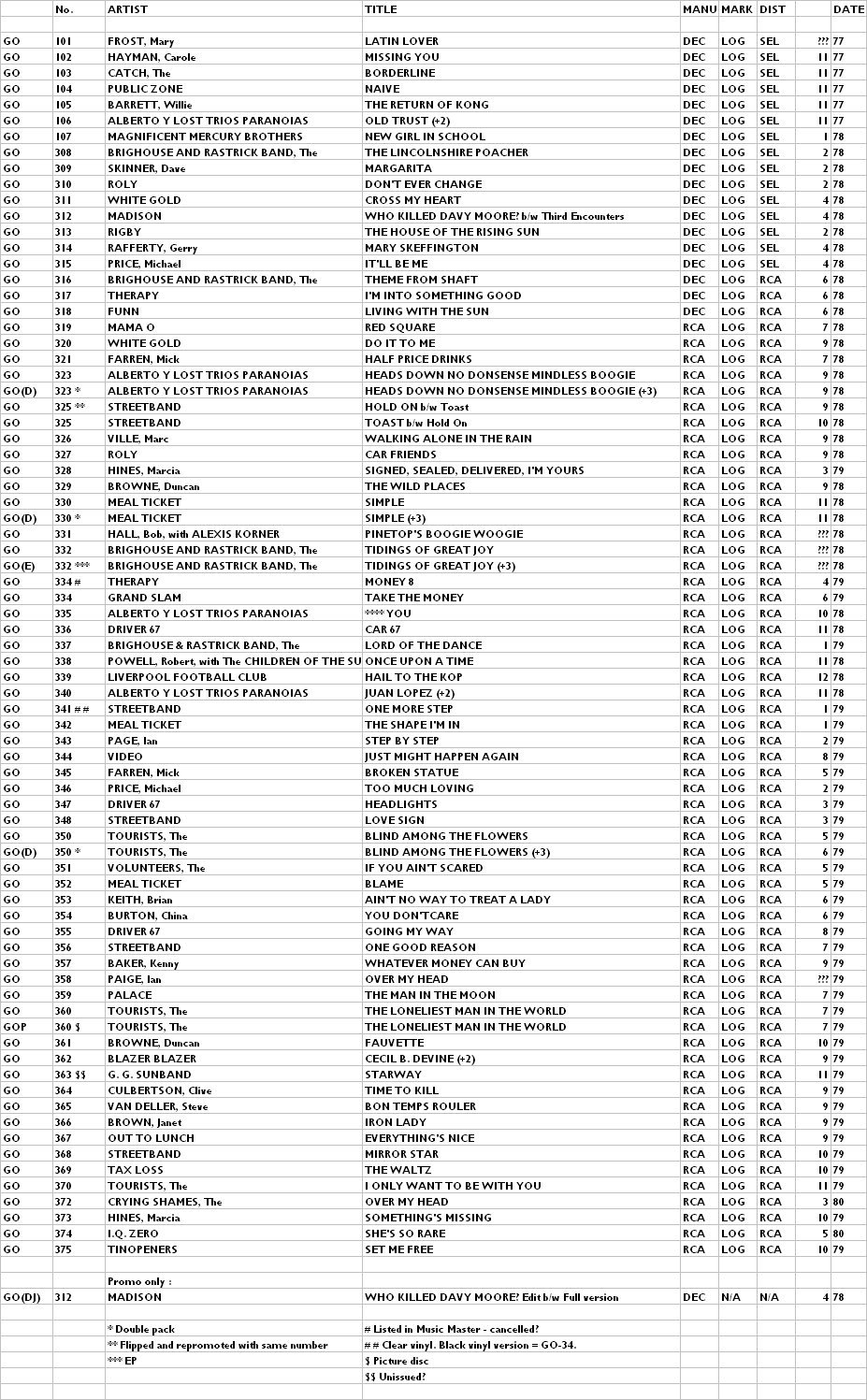


Copyright 2006 Robert Lyons.

